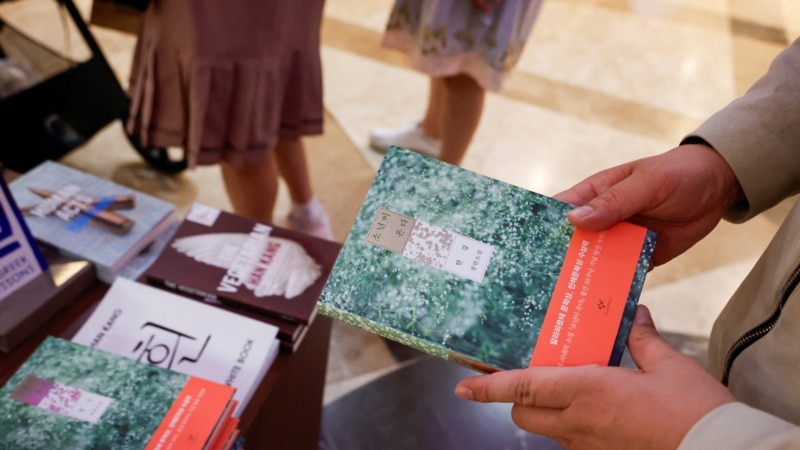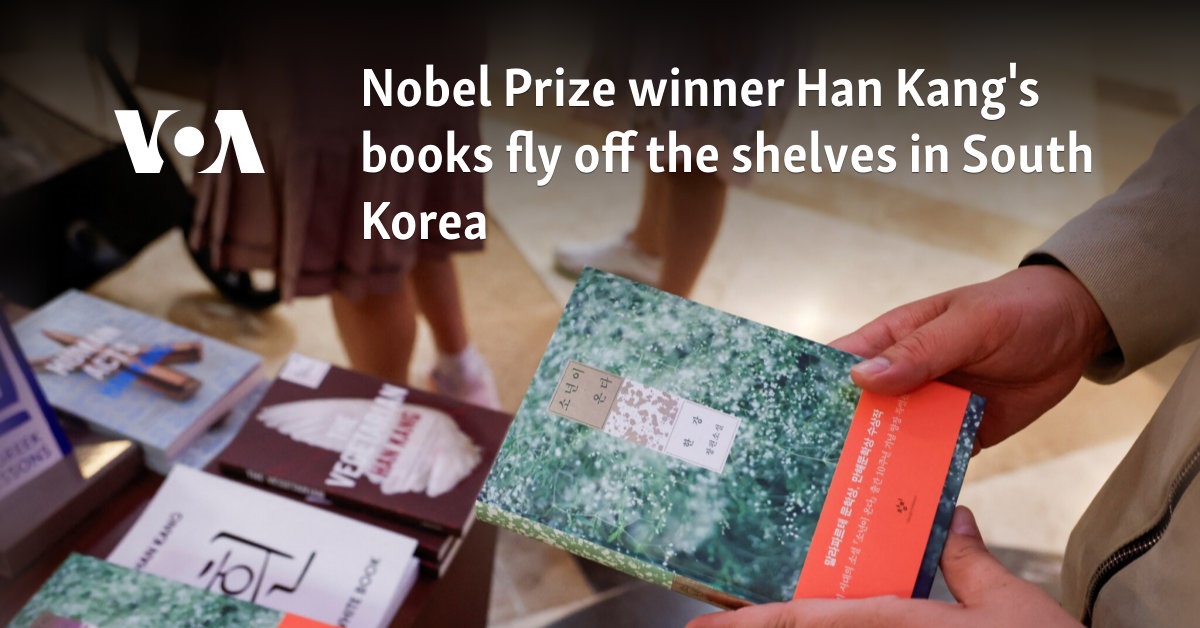This website uses cookies so that we can provide you with the best user experience possible. Cookie information is stored in your browser and performs functions such as recognising you when you return to our website and helping our team to understand which sections of the website you find most interesting and useful.


South Koreans flocked to bookstores Friday and crashed websites in a frenzy to snap up copies of the work of novelist Han Kang in her home country, after her unexpected win of the 2024 Nobel Prize in Literature.
However, the author herself was keeping out of the limelight.
The country's largest bookstore chain, Kyobo Book Centre, said sales of her books had rocketed on Friday, with stocks almost immediately selling out and set to be in short supply for the near future.
"This is the first time a Korean has received a Nobel Prize in Literature, so I was amazed," said Yoon Ki-heon, a 32-year-old visitor at a bookstore in central Seoul.
"South Korea had a poor achievement in winning Nobel Prizes, so I was surprised by news that (a writer of) non-English books, which were written in Korean, won such a big prize."
Soon after Thursday's announcement, some bookstore websites could not be accessed due to heavy traffic. Out of the current 10 bestsellers at Kyobo, nine were Han's books on Friday morning, according to its website.
Han's father, well-regarded author Han Seung-won, said the translation of her novel The Vegetarian, her major international breakthrough, had led to her winning the Man Booker International Prize in 2016 and now the Nobel prize.
"My daughter's writing is very delicate, beautiful and sad," Han Seung-won said.
"So, how you translate that sad sentence into a foreign language will determine whether you win ... It seems the translator was the right person to translate the unique flavor of Korean language."
Han's other books address painful chapters of South Korean history, including Human Acts which examines the 1980 massacre of hundreds of civilians by the South Korean military in the city of Gwangju.
Another novel, We Do Not Part, looks at the fallout of the 1948-54 massacre on Jeju island, when an estimated 10% of the island's population were killed in an anti-communist purge.
"I really hope souls of the victims and survivors could be healed from pain and trauma through her book," said Kim Chang-beom, head of an association for the bereaved families of the Jeju massacre.
Park Gang-bae, a director at a foundation that honors the victims and supports the bereaved families and survivors of the Gwangju massacre, said he was "jubilant and moved " by her win.
"The protagonists in her book (Human Acts) are people we meet and live with every day, on every corner here, so this is deeply moving," Park said.
Han's father told reporters on Friday that she may continue to shun the limelight after giving no separate comments or interviews and eschewing media scrutiny since Thursday's win.
"She said given the fierce Russia-Ukraine, Israel-Palestine wars and people dying every day, how could she celebrate and hold a joyous press conference?" her father said.
Han Kang received the news of her win about 10 to 15 minutes before the announcement, her father said, and was so surprised that she thought it might be a scam at one point.



 Africana55 Radio
Africana55 Radio 
